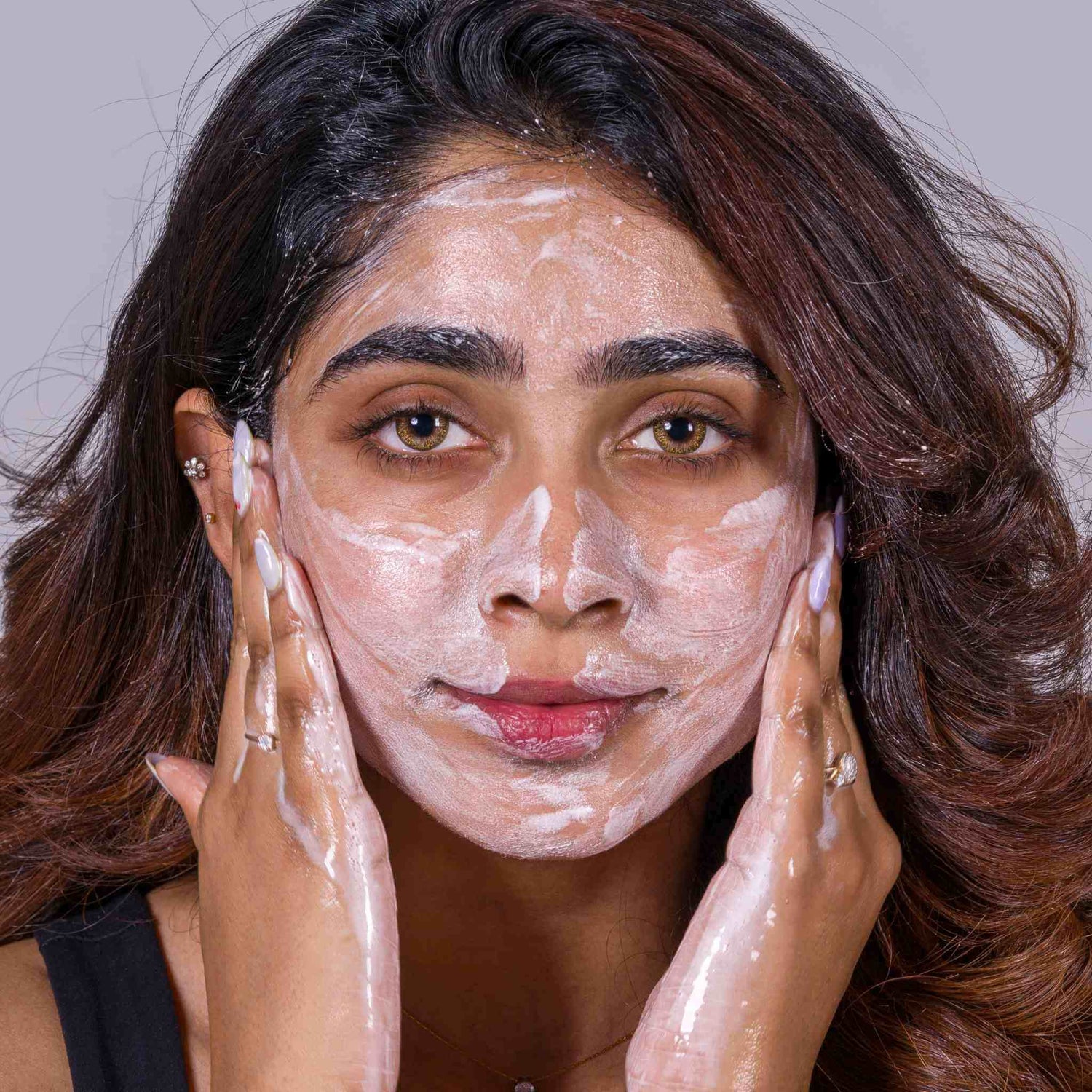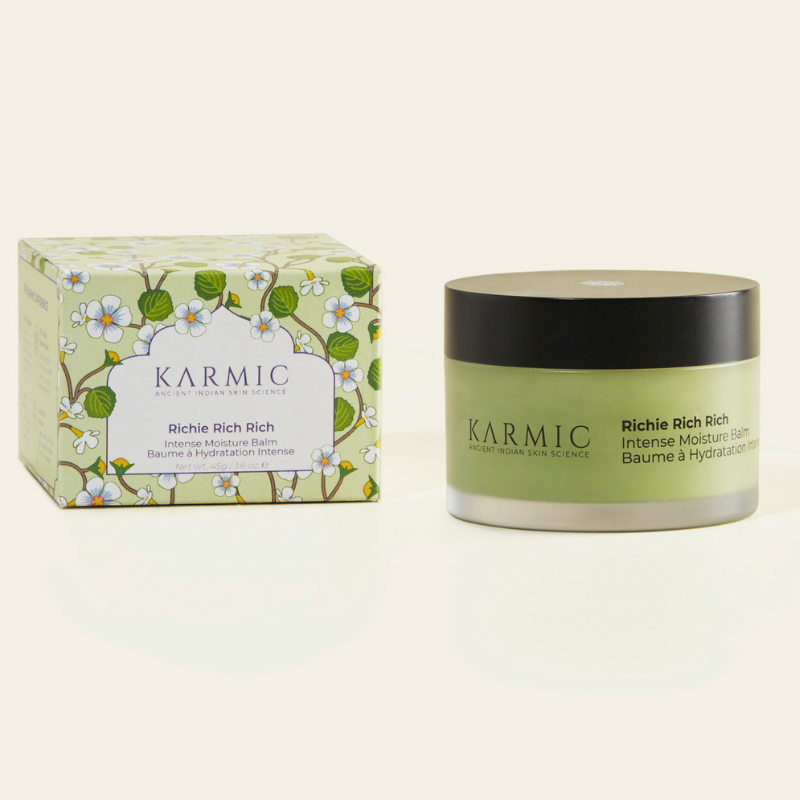Introduction
Eczema and dry skin are not just about discomfort; they're about the constant search for relief and the right care routine. With the right approach to cleansing, you can soothe your skin, reduce flare-ups, and improve your quality of life. This article is your comprehensive guide to understanding and managing eczema and dry skin through effective cleansing practices.
The Basics of Eczema and Dry Skin
Eczema and dry skin, though often mentioned in the same breath, have distinct characteristics. Eczema is an inflammatory condition leading to red, itchy, and sometimes oozing skin patches. Dry skin, while less severe, can cause significant discomfort due to tightness, scaling, and itching. The triggers vary widely, from genetic factors to environmental irritants, making personalised care essential.
Importance of Proper Cleansing
Cleansing is foundational in the care routine for eczema and dry skin. It's not just about cleanliness; it's about maintaining the skin's delicate balance. Over-cleansing or using harsh products can strip the skin of its natural oils, exacerbating dryness and irritation. The goal is to cleanse gently, removing impurities without compromising the skin's barrier.
Selecting the Right Cleansers
The cleanser you choose can make a world of difference. Look for products labeled "fragrance-free" and "for sensitive skin," which typically contain fewer irritants. Ingredients like aloe vera, glycerin, rose water, and hyaluronic acid are beneficial, as they help retain moisture and repair the skin barrier. Conversely, avoid sulfates, alcohols, and fragrances, which can be harsh and drying. We recommend Karmic Skin's Gentle, Calming Cleanser for Sensitive Skin which is a non-toxic, vegan formula suited for all skin types.
How to Cleanse Properly
A thoughtful routine is key to managing eczema and dry skin. Begin with lukewarm water to avoid stripping the skin, and apply your cleanser gently, using your fingertips in a circular motion. Rinse thoroughly but gently, and always pat the skin dry with a soft towel—rubbing can aggravate sensitivity. Consistency in this routine can significantly reduce discomfort and improve skin health.
Irritation-Free Makeup and SPF Removal
In the evening, properly removing makeup and SPF is crucial in maintaining healthy skin and avoiding irritation, especially for those with sensitive or acne-prone skin types. Makeup and SPF products can clog pores and trap pollutants, leading to breakouts, dullness, and accelerated aging if not removed correctly. A gentle makeup-removing cleansing balm is an effective solution, as it dissolves even the most stubborn products without stripping the skin of its natural oils.
This method ensures that all traces of makeup and sunscreen are gently lifted from the skin's surface, allowing it to breathe, repair, and regenerate overnight. Incorporating a cleansing balm into your nighttime routine can transform your skin's health, providing a clean canvas that is less prone to irritation and better able to absorb the benefits of subsequent skincare products.
Moisturising After Cleansing
Moisturising immediately after cleansing locks in hydration and supports the skin's barrier. Choose a moisturiser tailored to sensitive skin, free from irritants, and rich in barrier-repairing ingredients. Apply it while the skin is still damp to maximise absorption and effectiveness.
Gentle Exfoliation Techniques
Exfoliation can help remove dead skin cells and improve texture, but it must be done with care. Chemical exfoliants like lactic acid are often better tolerated than physical scrubs. Alternatively, homemade options like oatmeal masks can gently exfoliate without harshness, providing soothing benefits as well.
The Role of Diet in Managing Eczema
Diet influences skin health more than we often realise. Omega-3 fatty acids, found in fish and flaxseeds, can reduce inflammation, while foods rich in antioxidants, like fruits and vegetables, support skin healing. Conversely, dairy and processed foods can trigger flare-ups in some individuals, making moderation or avoidance beneficial.
Importance of Hydration
Hydration, both inside and out, is crucial. Drinking ample water supports overall health and aids in skin hydration, while external methods like humidifiers can maintain moisture in the air, especially in dry climates or during winter months. Topically, you can try incorporating hydrating serums under your moisturiser containing humectants like glycerin and aloe vera.
Natural Remedies and Supplements
Natural remedies, like pure aloe vera and coconut oil, can offer relief with their anti-inflammatory and moisturising properties. Supplements such as fish oil, vitamin D, and probiotics might also support skin health, though it's essential to consult with a healthcare provider before starting any new supplement.
Advanced Skin Care Tips
Beyond the basics, consider overnight treatments like thick, barrier-repair balms to protect and heal the skin. During the day, physical sunscreens can provide protection without the irritation that chemical sunscreens might cause.
Managing Flare-Ups
When flare-ups occur, it's important to act swiftly. Cooling compresses can provide immediate relief, while topical treatments prescribed by a dermatologist can address the inflammation and itching more directly. Long-term, identifying and avoiding triggers is key to prevention.
The Impact of Stress on Eczema and Dry Skin
Stress can exacerbate both eczema and dry skin, making stress reduction techniques like mindfulness, yoga, and adequate sleep vital components of skin care. These practices can help mitigate the impact of stress, leading to calmer skin and a calmer mind.
Eczema and Dry Skin Myths Debunked
Myths abound when it comes to skin care, from the notion that eczema is just dry skin to the idea that bathing less frequently is always better. Understanding the facts is crucial for effective management and avoiding potential harm from well-intentioned but misguided advice.
Frequently Asked Questions
- Can diet really affect eczema and dry skin? Yes, diet can influence inflammation and skin health, with certain foods potentially triggering flare-ups.
- How often should I moisturise if I have eczema or dry skin? Moisturising at least twice a day, especially after cleansing or bathing, can help maintain skin hydration and barrier function.
- Is it safe to exfoliate eczema-prone skin? Gentle exfoliation can be beneficial, but it's important to choose mild exfoliants and use them sparingly.
- Can stress cause eczema to flare up? Yes, stress is a known trigger for eczema flare-ups and can worsen dry skin conditions.
- Are natural remedies effective for eczema and dry skin? Many find relief with natural remedies, but it's essential to choose a brand using high-quality ingredients to see notice effective results.
Conclusion
Cleansing eczema and dry skin effectively requires a gentle, informed approach. By understanding your skin's needs, selecting the right products, and maintaining a consistent care routine, you can achieve healthier, more comfortable skin. Remember, managing eczema and dry skin is a journey, and small, daily steps can lead to significant improvements over time.




